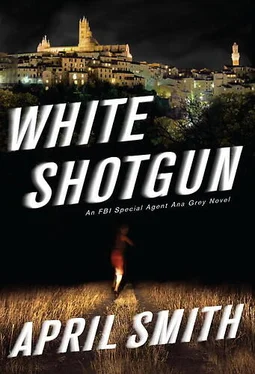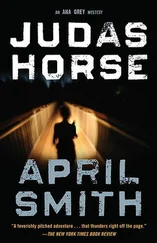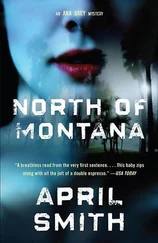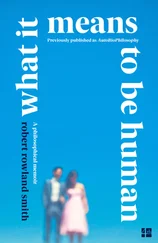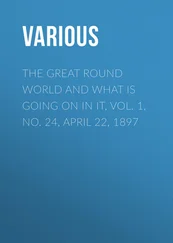April Smith - White Shotgun
Здесь есть возможность читать онлайн «April Smith - White Shotgun» весь текст электронной книги совершенно бесплатно (целиком полную версию без сокращений). В некоторых случаях можно слушать аудио, скачать через торрент в формате fb2 и присутствует краткое содержание. Год выпуска: 2011, ISBN: 2011, Жанр: Триллер, на английском языке. Описание произведения, (предисловие) а так же отзывы посетителей доступны на портале библиотеки ЛибКат.
- Название:White Shotgun
- Автор:
- Жанр:
- Год:2011
- ISBN:978-0-307-59679-6
- Рейтинг книги:4 / 5. Голосов: 1
-
Избранное:Добавить в избранное
- Отзывы:
-
Ваша оценка:
- 80
- 1
- 2
- 3
- 4
- 5
White Shotgun: краткое содержание, описание и аннотация
Предлагаем к чтению аннотацию, описание, краткое содержание или предисловие (зависит от того, что написал сам автор книги «White Shotgun»). Если вы не нашли необходимую информацию о книге — напишите в комментариях, мы постараемся отыскать её.
White Shotgun — читать онлайн бесплатно полную книгу (весь текст) целиком
Ниже представлен текст книги, разбитый по страницам. Система сохранения места последней прочитанной страницы, позволяет с удобством читать онлайн бесплатно книгу «White Shotgun», без необходимости каждый раз заново искать на чём Вы остановились. Поставьте закладку, и сможете в любой момент перейти на страницу, на которой закончили чтение.
Интервал:
Закладка:
Sitting still at the long kitchen table, I let the cup of tea warm my hands. It reminds me of being stuck waiting for Sterling in Dublin for eight straight days of rain, in what I thought was a hotel, but which turned out to be a boardinghouse. Going crazy alone in the room one night, I went down to the parlor, a barren space with a linoleum floor and a heatless electric fireplace. Straight-backed chairs had been pushed against the walls and were occupied by dark-suited, middle-aged men drinking whiskey. Someone who lived in the boardinghouse had died, and they had gathered there. Nobody spoke to anyone else. The rain hammered. Then, as now, I was a foreign traveler wrapped up in someone else’s crisis, with no place else to go.
In the kitchen I feel imprisoned by insurmountable great stone walls. I miss Sterling with a feeling of futility. How will we ever get from here to there? His absence has become an almost palpable thing, like the cold humidity in the kitchen. We haven’t spoken since we said good-bye on the street in London, and the separation is becoming cruel. I could use his wisdom on the impossible position of being an agent of the law with no way to enforce it.
When I called Dennis Rizzio in Rome to tell him about the attack on Giovanni, as well as to chide him for alerting the provincial police of my presence without telling me, that’s exactly what he said: “It’s Italian on Italian. We have no jurisdiction; it’s up to the local authorities,” even if the local authority — Il Commissario — has conflicting loyalties, thanks to the gangland culture of Siena. And thanks to the convoluted double-talk of the Italian system, I’m beginning to wonder if I can trust the legat, either.
As if actually arguing with Dennis, alone in the kitchen I pose the question out loud: “What was Giovanni up to?” Why was he outside the walls? What made him a target? Was it his famous family, or was he up to shenanigans of his own?
On a table near the front entrance of the abbey there is a pile of guidebooks for the use of the guests. I search for a schedule of bus service to Siena, but then can’t make heads or tails of it. Inside a binder of restaurant recommendations is a card for a taxi company. An hour later, when the driver arrives — receding hair, blue sunglasses despite the rain — we can’t seem to understand each other, but that is not a problem. I show him the paper Inspector Martini passed me in the ladies’ room, and we drive to that address, outside the walls of the city, where, she was covertly telling me, Giovanni’s vehicle was found by the police.
The little blue mailbox car is still in the same spot. It is a bad parking job, as if he stopped in a hurry and didn’t plan to stay long. The two-story stucco apartment buildings in this low-rent suburb are painted in reckless colors of turquoise and tangerine. Sliding glass doors open to narrow balconies that seem about to slide off the walls, like tiers of a badly made cake. Huddling beneath a golf umbrella from the abbey, I take out a notebook and sketch a map of the crime scene. An old habit, it helps me to think.
The glossy wet street is deserted, bloodstains washed away by the rain. Whom did Giovanni come to see? I’m guessing it was a teenage friend. In America you can tell student apartments by the beer cans and Tibetan flags, but here there is nothing to indicate any kind of tenants other than working families. People are waiting for a bus; behind them is a sliver of stores, including an Internet spot that also sells Indian jewelry, a Laundromat with bright red washing machines, a grocery, and a store with a window full of nothing but espresso pots.
The Muslim guy in the Internet spot speaks English but has nothing to tell me, there’s nobody in the Laundromat (who does laundry in the rain?), the coffeepot store is closed, and the grocery lady appears to have some form of dementia, but she’s interested in having company, so I take what I can get.
She’s wearing a dark flowered dress and a raggedy sweater, stamping around the wooden floors with fiercely scattered energy. Her hair is white and her eyes are mad, unnatural blue — bright lights in the musty dark. The electricity is off except in the deli case containing cheeses and prosciutto, cartons of eggs, and antipasti materials such as roasted peppers and calamari salad. Behind the counter are shelves of yellowing school supplies. When I point to Giovanni’s car across the street and display a photo of him that I lifted from Cecilia’s bedroom, she bursts into smiles and grabs my hands, wringing the life out of them, urging over and over, in a bizarre segue, that I must have torta di Pasqua, a desiccated Easter cake lying in a chewed-up box, that by my calculations must be three months old.
Finally I buy the thing for a euro. Delighted to be rid of what the rats won’t eat, she pulls a set of keys from the pocket of her apron and waves me through the back door. I have to laugh at myself: There’s always a deal. Now she is happy to lead the way beneath a grape arbor that provides a pleasant shelter from the rain, to a staircase that goes up to an apartment over the grocery store. “Fa presto!” she keeps saying, and unlocks the door to what I believe must be her home, where her husband is no doubt sitting mummified in an armchair holding a piece of Easter cake, but no, we are in an artist’s studio. An artist who, by the canvases stacked up against the walls, paints only clouds.
But they are wonderful, expressive clouds I recognize from the skies of Tuscany, captured in the midst of many ephemeral moods. This is a working painter whose mind is organized around neat rows of pigments in wire baskets, sketches pinned to walls, brushes in size order in clean tin cans, revolving sculptures of stones and twigs, shelves of art books and animal skulls. There is just a narrow cot for sleeping. This place is about disciplined work. A half-painted square of canvas, still showing ruled lines of perspective, is clipped to a large easel. The way it is positioned in the center of the room, underneath the skylight rattling with rain, makes you think of a big personality, always in the light.
Using hand gestures and my limited Italian, I manage to ask if the person who lives here is a friend of Giovanni.
“Sì, sì,” says the landlady. “Visita sempre.”
“He always comes here?”
“Sì!” Frowning, she mimes knocking on the door and walking in. Giovanni visits this place all the time, she seems to say. She knows because she sees him. He was here last night.
The old woman marches through the apartment, calling, “Mural?” and I expect to be presented with a wall-sized piece of art and bullied into buying it, but instead we enter the kitchen. Judging from the cot in the studio and the mess in here, Giovanni’s friend does not care very much about sleeping or eating. The counter is nothing but a plank of wood lying across a pile of cinder blocks. The paint-splattered sink is jammed with dishes and teacups, a rusted water heater suspended above. The landlady doesn’t react; she must snoop around up here all the time. Back in the room with the easel, I notice a pile of mail addressed to Muriel Barrett. Not “Mural,” but “Muriel.” The letters are postmarked London. The books around the house are in English.
“Where is Muriel?” I ask. “Dov’è?”
“La sbarra Australiana,” the landlady says.
I ask where Muriel is and she says Australia? I give her my notebook. Would she please write down the words? Australiana. Is she saying the painter is from Australia? With shaky fingers, the landlady draws a diagram with a crucifix in the middle, pointing emphatically—“Il Duomo” —and I understand she means the central cathedral in the old part of Siena, and there, where she makes a square and blackens it, is the location of the Australian bar that Giovanni told me about when we drove in from the bus station. “They speak English and have English beer!”
Читать дальшеИнтервал:
Закладка:
Похожие книги на «White Shotgun»
Представляем Вашему вниманию похожие книги на «White Shotgun» списком для выбора. Мы отобрали схожую по названию и смыслу литературу в надежде предоставить читателям больше вариантов отыскать новые, интересные, ещё непрочитанные произведения.
Обсуждение, отзывы о книге «White Shotgun» и просто собственные мнения читателей. Оставьте ваши комментарии, напишите, что Вы думаете о произведении, его смысле или главных героях. Укажите что конкретно понравилось, а что нет, и почему Вы так считаете.
